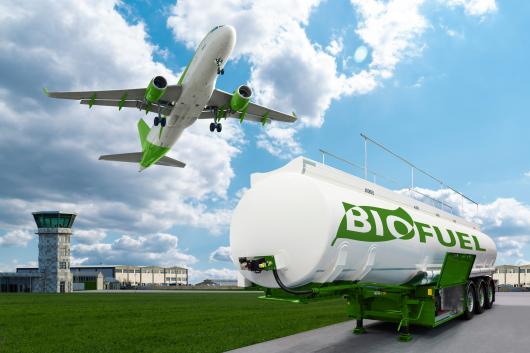Aviation is one of the rapidly growing sources of greenhouse gas emissions. Unlike other liquid fuels, such as gasoline or diesel with established alternatives (battery or electric power), the most promising alternative to current aviation fuel is bio-derived aviation fuel, which is still in the earliest stages of development.
The biomass to aviation fuel (B2A) project, run by Professor De Chen at the Department of Chemical Engineering, NTNU and his colleagues, aims to develop a new competitive technology platform to produce the next generation of aviation fuels from lignocellulosic biomass.

The costs of biomass, catalysts, carbon yield and catalyst stability, have been identified as the most sensitive parameters for the cost of biofuels.
To meet the challenges, the project proposes three main technical solutions to identify low-cost lignocellulosic biomass and biomass waste, develop low-cost stable catalysts and achieve high carbon yields of jet fuels, where catalysts play a critical role. The development of low cost and highly active and selective catalysts relies on a better understanding of surface reactions of the complex reactions.
The project aims to elucidate the catalyst structure, properties, and performance relationship by density functional theory (DFT) calculations. And to provide principles for catalysts' rational design and maximize the catalyst performance and yield of aviation fuels.